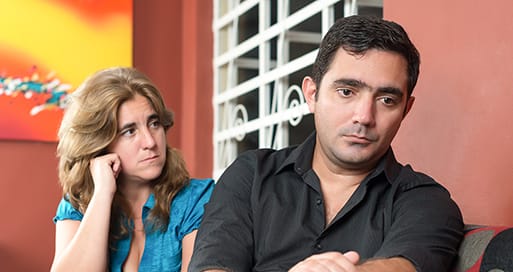Jun 13, 2017
How Do You Heal from Infidelity Post-Divorce?
Divorce and General Articles
In her book How Can I Forgive You?, clinical psychologist Janis Abrahms-Springs, author of After The Affair, examines the paths people take after trust is broken.
No Forgiveness or Knee-Jerk Forgiveness
Of course, refusing to forgive your partner cuts off any healing in the relationship. However, cheap forgiveness — just saying you forgive without actually working through the emotions about the betrayal — just avoids and delays real growth.
Accept, Forgive, Heal
Genuine forgiveness and/or acceptance are the two best options for rebuilding your relationship.
Active Participation by Both Parties
When both partners actively participate — either post-divorce or in marital reconciliation — the goal is genuine forgiveness. The betrayed partner expresses feelings of hurt, fear, and anger. Then, the betrayer expresses remorse, takes responsibility for their behavior and makes amends. The shared goal to repair the relationship encourages each person to hear and be heard. It’s the first step on the way to rebuilding trust. However, in the case of divorce, this type of forgiveness may take years to happen, if at all.
Resistance by One or Both Parties
Abrahms-Springs acknowledges that forgiving a partner who is unrepentant is not necessarily best for you.
In this case, the alternative is acceptance of the facts then realizing that any forgiveness you offer will be for yourself. Don’t expect any involvement from your unfaithful spouse. It’s more important to seek healthy living and growth. How to do this? Give up the need for revenge, cease obsession about the injury, protect yourself from further abuse, reengage in life, frame your spouse’s behavior in terms of his or her personal struggles, and look honestly at your own contribution to the situation.
Infidelity commonly results in feelings of shame, low self-esteem, confusion, fear and resentment. But if you are open to support and encouragement from family, friends, psychotherapy or support groups, you can move through these feelings. Focus on accepting and appreciating the good in your life, regardless of the painful experiences, and you will set yourself on a path of healing.
Other resources for self-exploration and healing can be found in the following books:
- The Wisdom of a Broken Heart by Susan Piver
- Transcending Post-Infidelity Stress Disorder: The Six Stages of Healing by Dennis C. Ortman
- After the Affair by Janis Abrahms-Springs
- Runaway Husbands by Vikki Stark
- Private Lies by Frank Pittman
- Mending A Shattered Heart by Stephanie Carnes
- Deceived by Claudia Black
by Deirdre Hally-Shaffer, MSW, LCSW
©2017 Alpha Center for Divorce Mediation
